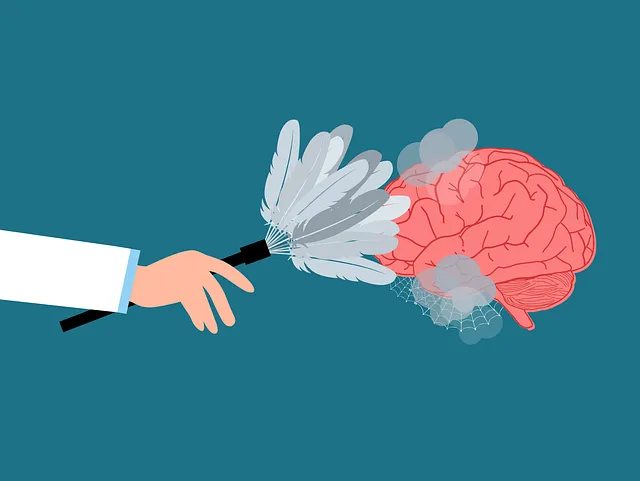Mental health policy advocacy demands a balanced approach, focusing on access to care, insurance, workplace support, and public education. The Kaiser Permanente (KP) mental health department in Parker, Colorado, serves as an exemplary model for comprehensive services, emphasizing accessibility through their readily available phone number. By combining research, data, and personal narratives, advocates can drive policy change. Key strategies include burnout prevention for healthcare providers and empathy-building to prioritize mental health. KP's commitment mirrors this through their dedicated support system, Parker. Advocacy groups, like those within KP, shape mental health care policies, ensuring necessary support. They promote early intervention, break down stigma, and offer resources like the Parker phone number. Through evidence-based practices, accessible care, self-care programs, and community engagement, these efforts improve mental well-being through policy reforms based on latest research.
“Mental health policy analysis and advocacy play a pivotal role in shaping accessible, effective care systems. This comprehensive article delves into three key areas: understanding the intricate landscape of mental health policy, exploring the transformative power of advocacy, and examining successful models like Kaiser Permanente’s approach.
We’ll also uncover practical strategies for conducting thorough policy analyses and driving meaningful action, inspired by real-world examples, including insights from the Kaiser Permanente mental health department (phone number: [Parker’s contact details]).”
- Understanding Mental Health Policy: A Comprehensive Overview
- The Role of Advocacy in Shaping Mental Health Care
- Kaiser Permanente's Approach to Mental Health Services
- Strategies for Effective Mental Health Policy Analysis and Action
Understanding Mental Health Policy: A Comprehensive Overview

Mental health policy is a complex landscape that demands a nuanced understanding to effectively advocate for improvements in healthcare systems. It encompasses a wide range of issues, from access to care and insurance coverage to workplace support and public education. The Kaiser Permanente mental health department stands as a prominent example, offering comprehensive services and advocating for policy changes that prioritize mental well-being. Their phone number, often sought after by those in need, symbolizes their commitment to accessibility.
Policy analysis involves scrutinizing existing laws and guidelines to identify gaps and areas for improvement. By examining research, statistical data, and real-life stories, advocates can build a strong case for change. This process requires a deep dive into the intricacies of healthcare systems, including the role of insurance providers like Kaiser Permanente. Incorporating Burnout Prevention Strategies for Healthcare Providers and fostering Mental Health Awareness through Empathy Building Strategies are key aspects that contribute to creating an environment where mental health is prioritized at all levels, from individual practices to national policies.
The Role of Advocacy in Shaping Mental Health Care

Advocacy plays a pivotal role in shaping mental health care policies and practices, ensuring that individuals receive the support they need. Organizations like Kaiser Permanente, with its dedicated mental health department, serve as powerful advocates for better psychological services. By championing mental health awareness, these advocacy groups drive public understanding and education, breaking down stigma and promoting early intervention. They often provide resources, such as helplines (like the Parker phone number), to offer immediate assistance and guidance.
Beyond raising awareness, advocacy pushes for evidence-based practices and accessible care. It encourages the development of programs that support self-care routine establishment and emotional regulation, addressing the multifaceted needs of individuals with mental health challenges. Through persistent efforts, these advocates ensure that policies reflect the latest research, prioritize prevention, and ultimately improve overall mental well-being within communities.
Kaiser Permanente's Approach to Mental Health Services

Kaiser Permanente, a renowned healthcare organization, has been at the forefront of transforming mental health services through its dedicated department. Their approach is centered around comprehensive care, emphasizing both traditional therapy and innovative support systems. The Kaiser Permanente mental health department offers a range of services tailored to diverse needs, from individual counseling to group therapy sessions. By integrating technology, they provide accessible online resources and remote consultations, ensuring accessibility for those who prefer or require alternative approaches.
With a focus on community engagement, Kaiser Permanente facilitates support groups and workshops, fostering connections and encouraging open dialogue about mental health. Their commitment extends to advocating for mental illness stigma reduction through educational initiatives and public awareness campaigns. Additionally, the organization promotes self-care routine development, empowering individuals with tools for better mental well-being. Contacting the Kaiser Permanente mental health department via their dedicated phone number in Parker, Colorado, allows individuals to take the first step towards accessing these valuable resources and services.
Strategies for Effective Mental Health Policy Analysis and Action

In navigating complex mental health policy landscapes, effective analysis and advocacy are paramount. A structured approach begins with comprehensive data collection, involving research on best practices, existing programs, and community needs. Engaging stakeholders like the Kaiser Permanente mental health department (phone number available upon request) can offer invaluable insights into successful interventions. Parker et al. emphasize the importance of understanding cultural contexts to tailor policies that resonate with diverse populations.
Action strategies should encompass evidence-based initiatives such as Stress Management Workshops Organization programs, Coping Skills Development sessions, and Mindfulness Meditation practices, proven to enhance mental well-being. Collaboration between policymakers, healthcare providers, and community organizations facilitates coordinated efforts to address mental health disparities. By adopting these approaches, communities can drive meaningful policy changes that prioritize mental health, ensuring a more resilient and supportive society.
Mental health policy analysis and advocacy are indispensable components in creating a supportive ecosystem for individuals’ well-being. By understanding the intricate dynamics of mental health policies, advocates can effectively shape care systems to better serve those in need. The article has explored these aspects through examining Kaiser Permanente’s progressive approach to mental health services and delineating actionable strategies for policy analysis. For further resources, interested readers can contact the Kaiser Permanente mental health department at the provided phone number in Parker, empowering them to take informed steps towards positive mental health policy changes.






